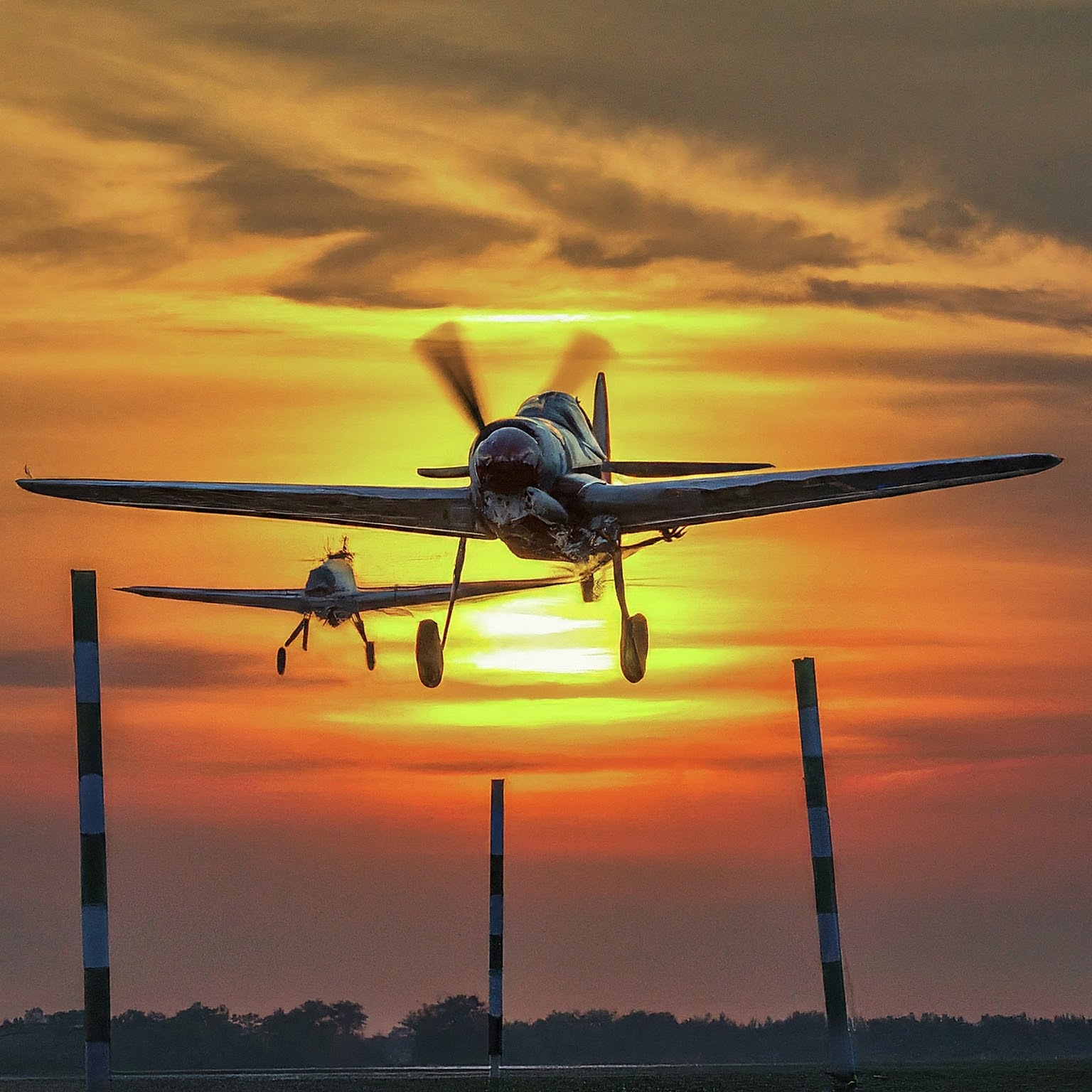Air Racing


Air racing involves pilots maneuvering high-performance airplanes through a challenging aerial course marked by pylons or virtual gates. They need to achieve speed while maintaining precision and safety.
Red Bull Air Race: Features highly modified airplanes reaching speeds over 200 mph while navigating a tight, obstacle-filled course.
Reno Air Races: Focuses on propeller-driven aircraft reaching speeds exceeding 400 mph in a closed circuit around pylons.
Air Race Classic: An all-women's VFR (Visual Flight Rules) race where competitors navigate a long-distance course with multiple checkpoints.
The cost of participating in air racing varies greatly depending on the specific race series and the level of competition
High-End: Elite series like Red Bull Air Race involve heavily modified airplanes costing millions of dollars, with additional expenses for team personnel, travel, and maintenance.
Mid-Range: Races like the Reno Air Races can still involve highly customized aircraft costing hundreds of thousands of dollars, along with significant operational costs.
Entry-Level: Events like the Air Race Classic allow participation with production aircraft, but there are still pilot licensing requirements, fuel costs, and registration fees.
Pilot License: A valid pilot's license with appropriate ratings for the type of aircraft used in the race is mandatory (e.g., Private Pilot License or higher).
Race-Specific License: Some organizations might require an additional competition license or certification specific to their air racing series. This could involve additional training or assessments focused on air racing maneuvers and safety protocols.
Fédération Aéronautique Internationale (FAI): The governing body for air sports worldwide. They establish international air racing standards and oversee world championship events. https://www.fai.org/
Red Bull Air Race: A high-profile Championship series featuring a tight, obstacle-course style race format with highly modified aircraft. https://www.redbull.com/us-en/tags/air-racing
Formula Air Racing Association (FARA): International organization promoting Formula Air Racing, a discipline with standardized aircraft designs and electric air racing initiatives. https://www.facebook.com/FormulaAirRacing/
Air Race Classic: An all-women's VFR (Visual Flight Rules) race in the United States focusing on long-distance navigation and promoting female aviators. https://www.airraceclassic.org/
Sport Class Air Racing: Organization dedicated to promoting sport class air racing in the Reno Air Races, featuring propeller-driven aircraft on a closed circuit course. https://www.sportclass.com/
1. Acquire Your Pilot's License:
This is the foundation. You'll need a valid pilot's license, typically a Private Pilot License (PPL) or higher, depending on the race class and organization.
2. Build Flight Hours and Experience:
Gain experience as a pilot. Most races require a minimum number of flight hours (often 100 hours or more) as pilot in command (PIC).
3. Explore Air Racing Disciplines:
Familiarize yourself with different air racing formats like the Red Bull Air Race's obstacle course or the Air Race Classic's long-distance navigation. Understanding the various styles will help you choose a path that aligns with your interests and skillset.
4. Consider Aerobatic Training (Optional but Recommended):
While not mandatory for all races, aerobatic training can significantly enhance your flying skills and comfort level in maneuvering an aircraft during a race. This can give you a competitive edge.
5. Connect with the Air Racing Community:
Organizations: Reach out to organizations like FAI or the specific air racing series you're interested in. They often have resources for newcomers, information on licensing requirements, and upcoming race details. Events: Attend air races as a spectator. This allows you to witness the sport firsthand, network with pilots and teams, and gain valuable insights. Online Forums: Online communities and forums dedicated to air racing can be a great resource for connecting with experienced pilots, asking questions, and learning from others.
6. Look for Entry-Level Opportunities:
Some air racing series might have classes designed for beginners or less powerful aircraft. This can be a cost-effective way to gain experience in a competitive environment.